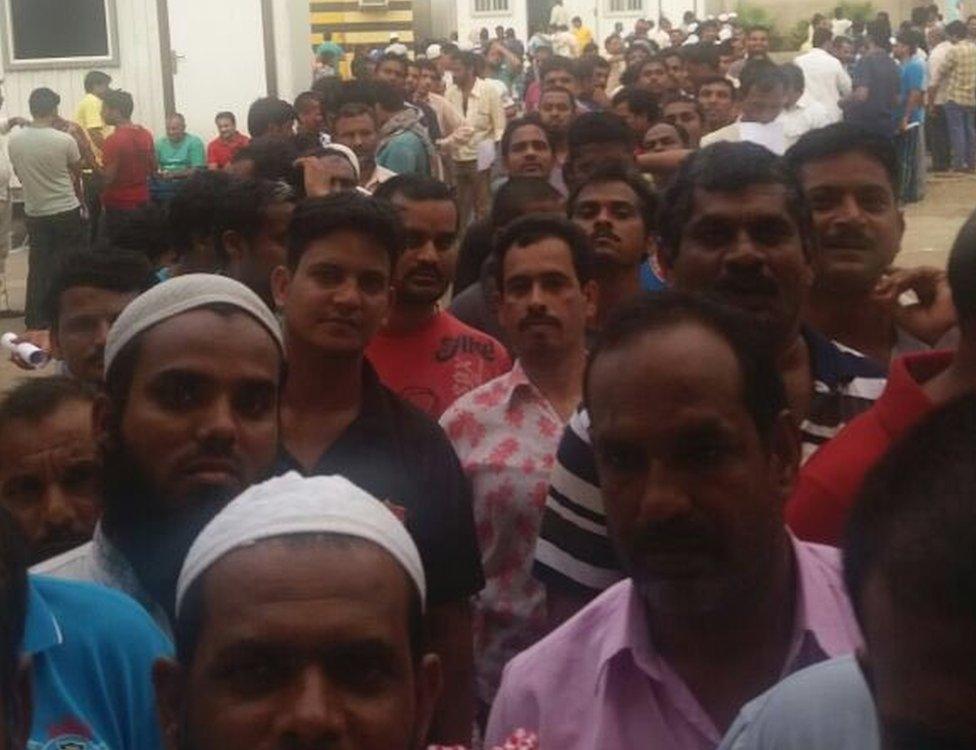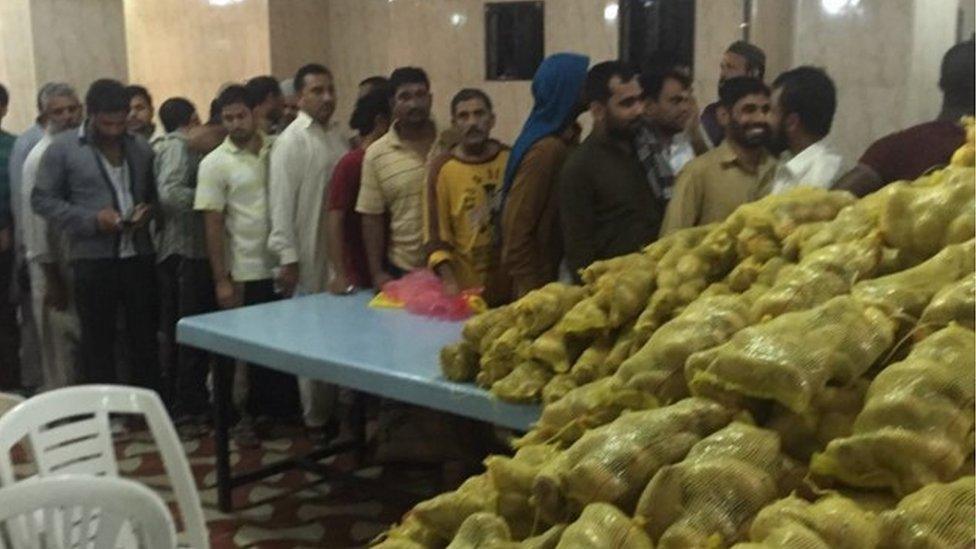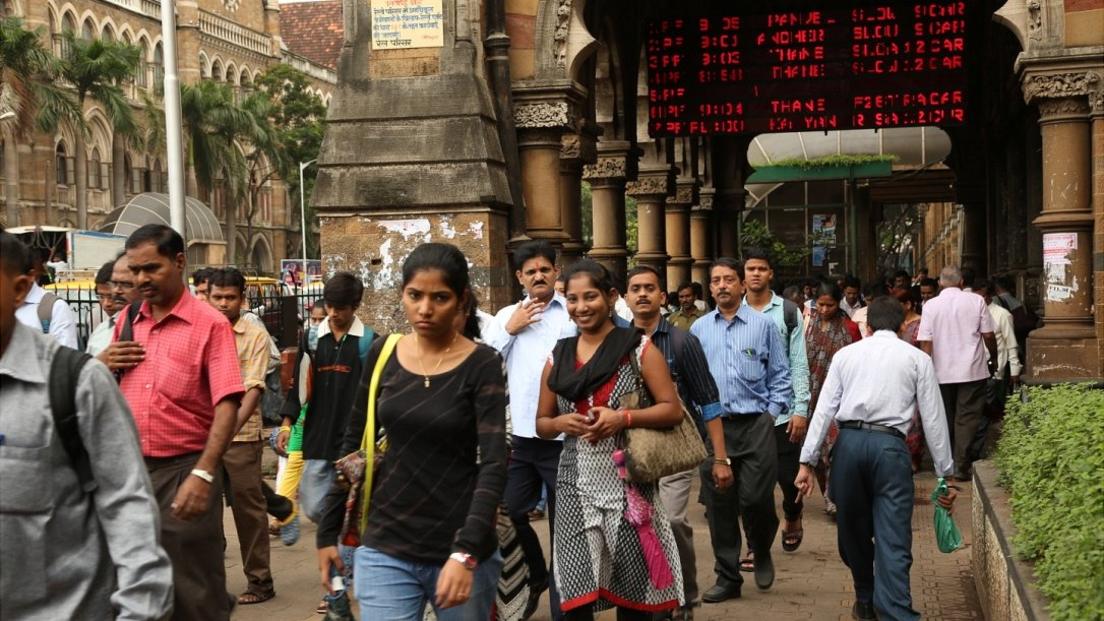'Food crisis' hits 10,000 laid-off Indians in Saudi Arabia
- Published

An image posted by the Indian consulate in Jeddah shows Indian nationals queuing for food
More than 10,000 Indian nationals laid off in Saudi Arabia are facing a "food crisis", India's foreign minister says.
Sushma Swaraj said "large numbers" of Indians had lost their jobs in the kingdom, leaving them with not enough money to buy food.
The Indian community in Jeddah, with the government's help, has distributed food to those in need at the weekend.
Growth has slowed in Saudi Arabia as the country suffers the effect of lower oil prices.
Ms Swaraj appealed on Twitter for the three-million-strong Indian community in the country to "help your fellow brothers and sisters".
"I assure you that no Indian worker rendered unemployed in Saudi Arabia will go without food," she wrote, external.
A government minister is travelling to Saudi Arabia, Ms Swaraj said. He is expected to help with arranging an airlift of laid-off Indians who are unable to afford the air fare home.

Tons of food were distributed in Jeddah on Saturday
The Indian consulate in Jeddah said it had distributed more than 15,000kg (34,000lb) of food on Saturday alone, with the help of Indian nationals in the city.
The embassy in Riyadh was asked to distribute as much food as they could to those in need.
Reports in India on Saturday said 800 Indian workers had lost their jobs at Saudi Oger, a large Saudi-Lebanese construction company.
The Saudi-based Arab News website reported on Sunday that hundreds of Saudi Oger's employees, who said they had not been paid in seven months, had led protests in Jeddah, external.
The Saudi government has not commented on the situation of the Indian workers.
In the past, Human Rights Watch has criticised Saudi Arabia for "rampant employer abuses of migrant workers, including forcing them to work against their will or on exploitative terms".
A visa system that ties workers' residency to employment "grants employers excessive power over workers and facilitates abuse", the group said.
Workers laid off in Kuwait were also suffering food shortages, Ms Swaraj said, but the situation there was more manageable, she added.
- Published19 March 2016

- Published30 October 2015

- Published12 November 2015
